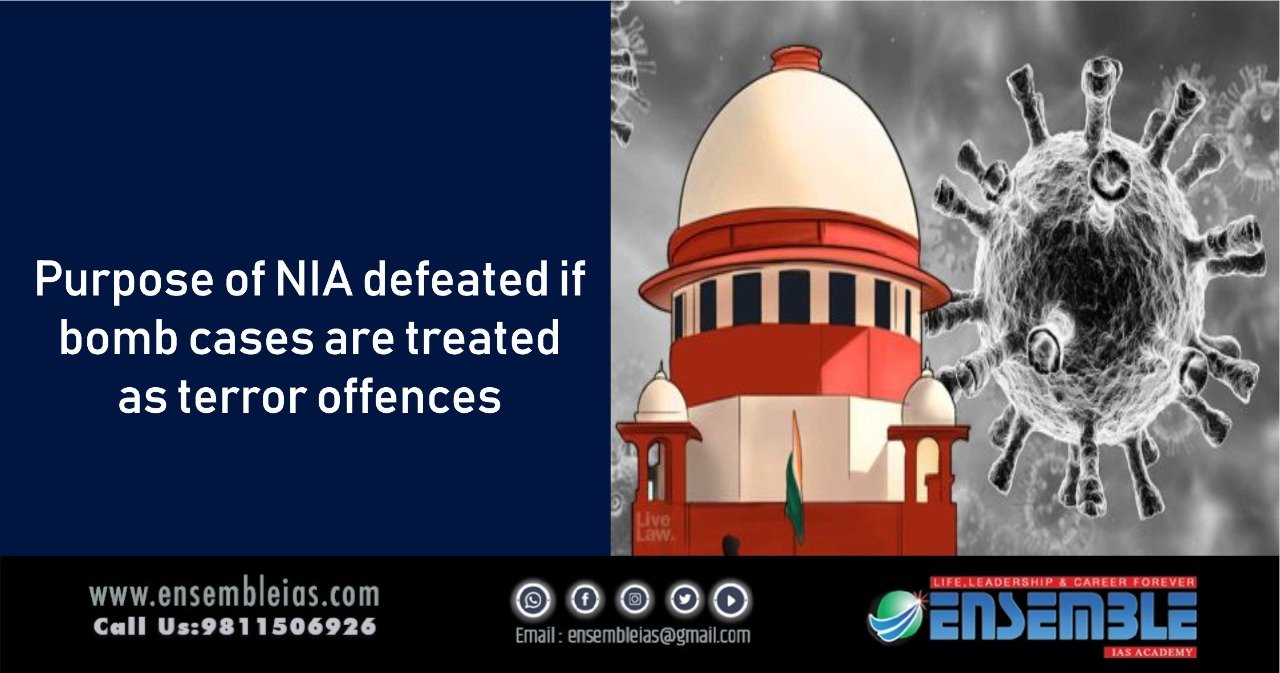The Madras high court recently observed that the objective of the National Investigation Agency (NIA) Act, 2008 would be defeated if all cases involving scheduled offences were sent to special court notified under the Act
To buy our online courses: Click Here
The Madras high court recently observed that the objective of the National Investigation Agency (NIA) Act, 2008 would be defeated if all cases involving scheduled offences were sent to special court notified under the Act.
The observations were made by a full bench comprising Justices P N Prakash, V Sivagnam, R N Manjula on July 12. They were constituted to decide on questions formulated by Justice A D Jagadish Chandira given conflicting orders passed while processing bail applications for charges under the Unlawful Activities Prevention Act (UAPA), which is a scheduled enactment under the NIA Act.
Questions such as whether an application against the order passed by the District and Sessions Judge in a matter concerning UAPA shall be numbered as a bail application or an appeal arose when Justice Chandira dismissed a bail application in December 2020 for charges under UAPA.
The full bench considered the referred question and said, “In our considered opinion, the very purpose and object of the NIA Act would stand defeated if all and sundry run of the mill country bomb cases are treated as terrorist offences and sent to Special Courts/Sessions Courts for trial.”
The court also noted statistics from the State Crime Records Bureau, which show in 2019, in Tamil Nadu, 139 FIRs were registered under the Explosive Substances Act, 1908, read with other IPC offences like Sections 307 and 302. Offences under the Explosive Substances Act, 1908 is a scheduled enactment under the NIA Act.
“It is common knowledge that ordinary rowdy gangs have now graduated from using knives to country bombs which they find easier to carry and hurl than traditional weapons,” the court said. “Out of the 139 FIRs, only in two FIRs, the provisions of the UAPA were incorporated. If the state police were to go by the strict mandates of the NIA Act, all the 139 Station House Officers (SHOs) should have to be trained to inform the state government that the moment an FIR is registered under any of the scheduled offences of the NIA Act, our state should have to intimate the central government about the registration of such cases. Thus, the central government will be loaded with a plethora of such reports from various state governments all over the country, which they have to analyze and take a decision on a case-to-case basis as to which of the cases have to be dealt with by the NIA and which have to be left with the state police to proceed with the investigation.”
The court added that sessions court, which was already overburdened with routine judicial work, would have to see the final reports of routine country bomb cases where UAPA has been invoked. “The very purpose of the NIA Act, 2008 is to expedite the trial of serious offences, enumerated in the schedule, which would be defeated if one court is jurisdictionally overloaded with several enactments conferring special jurisdiction. This is a practical issue, which, if not addressed with reasonable dispatch, would defeat the very purpose of having special courts.”
Also Read:Govt eases compliance burden to increase oil and gas output
Additional Solicitor General R Sankaranarayanan stated that he would bring the various issues on the matter to the attention of the law ministry and the court hoped that look into it with the seriousness it deserves.




